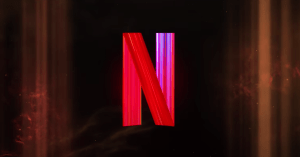Millions of Americans have already received the coronavirus stimulus checks from the CARES Act as a direct deposit payment, physical check or as a pre-paid debit card. The payments are meant to help taxpayers pay their bills and buy essentials during the coronavirus pandemic, which has shown no signs of slowing as state governments relax requirements on businesses. With more than 159 million payments sent across the country, scam artists have come out of the woodwork to con citizens.
The checks are part of the $2 trillion CARES Act passed by Congress and signed into law by President Donald Trump in late March. Most taxpayers who previously filed for their taxes with direct deposit information saw their checks added this week. There have been some glitches, though, with complaints sprouting on social media about deposits going to the wrong back account or going to tax preparers, who then have to send the checks to their customers.
Videos by PopCulture.com
At the moment, there is no second stimulus check coming, which means Americans will have to be very selective about how they use the $1,200 check. However, House Democrats have proposed another stimulus package, called the Emergency Money for the People Act. This would provide up to $2,000 per month for up to six months, according to Reps. Tim Ryan and Ro Khanna. In May, House Democrats passed the HEROES Act, which also included a second stimulus payment. However, Senate Republicans dismissed the bill, and nothing is likely to pass until after the Senate’s two-week July recess.
The Better Business Bureau and the Federal Trade Commission have released helpful information for consumers on how to avoid scams. Con artists usually come out for tax refunds, but this time they are targeting the stimulus checks. Here is a look at how scam artists are trying to take your money.
Fake Checks in the Mail
#IRS will NEVER demand immediate payment using a specific payment method such as a prepaid debit card, gift card or wire transfer. Also, we don’t call out of the blue about an unexpected refund. Here’s how to handle these scammers: https://t.co/D6ljuBHYuf #IRSTaxTip
— IRS (@IRSnews) April 15, 2020
No one who will be receiving a physical stimulus check in the mail has gotten theirs yet. As the FTC notes, any mailing you receive that claims to look like a check is a scam. If a mailing looks like a check and you received your check through direct deposit, that would also be a scam. The mailed checks are not expected to start arriving until May.
The IRS Never Makes You Repay an Overpayment in Cash

The IRS does not ask taxpayers to send back an “overpayment” in cash, gift cards, or money transfers. According to the FTC, this is a two-step scam. First, they would send you an “official-looking” check for more than you were expecting. Then, they will tell you to keep $1,200 and return the rest in another form. This kind of scam could end up with you owing to your bank.
The IRS Never Calls, Texts or Emails
One common scam at any time of year is someone calling pretending to be the IRS to get your personal information. Scammers also send out “official-looking” postcards with online passwords to websites, asking for your private information. The IRS is not going to contact you, notes the FTC.
Facebook Messages

The BBB told WKYT they have received reports from people who have been contacted through Facebook. No government agency is going to send you a Facebook message and ask for personal information. “We’ve heard of some of these scams pretending to be government agencies contacting people through instant messenger on Facebook,” Heather Clary with the Better Business Bureau said. “The government does not contact you that way they do not call you that’s going to be signs of a red flag that it’s not the government contacting you.”
Fake Economic Grants
The BBB also learned of a scam artist asking people to pay $200 for an “economic grant” that would help them during this time. “I spoke with one consumer who was asked to pay $200 in order to get that grant coming to her to assist her during this time she then knew it was a scam,” Clary said. Clary warned that some scammers might steal the profile of a Facebook friend to get personal information by sharing links that claim to help you get your check.
“She was contacted over Facebook by one of her friends who had their account stolen she followed all the links and wound up sending $200 apiece saying she could get her government grant money, she just had to provide the numbers off the back of the gift cards,” Clary explained. “All they did was steal the gift card money.”
The IRS’ ‘Get My Payment’ Website Is the Only Place You Can Track Your Payment

On April 15, the IRS launched its “Get My Payment” website, which is the only official way to get information on where your stimulus check is. If you receive any text or email with a link that does not take you directly to the real IRS website, it is a scam.
“To help protect against potential fraud, the tool also does not allow people to change bank account information already on file with the IRS,” the IRS said. “The IRS does not initiate contact with taxpayers by email, text messages or social media channels to request personal or financial information. We urge taxpayers to be on the lookout for scammers and email phishing attempts about the COVID-19 and Economic Impact Payments.”
Most Americans don’t have to do anything to claim their payments

If you receive an email or any mailings telling you there is something you have to do to claim your payment, ignore it. For most Americans who filed federal taxes for 2018 or 2019, the payment was automatically sent to the address the IRS had on file. “As long as you filed taxes for 2018 and/or 2019, the federal government likely has the information it needs to send you your money,” the FTC notes. “Social Security recipients and railroad retirees who are otherwise not required to file a tax return also do not need to do anything to receive their money.” Low-income Americans who do not file taxes do have to register for a payment using the Non-Filers tool on the IRS.gov site.
Scammers might use the incorrect terms for the payment
The government’s official term for the stimulus check is an “economic impact payment.” If you receive something referring to the payment as a “stimulus check” or a “coronavirus payment,” it is not real. “The official term is ‘economic impact payment’ — that’s what the IRS calls it,” Kim Cobb, a financial fraud expert at Little GG Capital, told CNBC. “The language matters.”
Make sure your check is authentic

Scammers might also send out fake checks. One visible sign that a check is fake is an odd amount. However, it is also essential to make sure the rest of the check is genuine. A real check includes the Statue of Liberty and the Treasury seal under “United States Treasury.” The real check is also made using several fraud safeguards, including bleeding ink, watermarks, ultraviolent printing and microprinting, notes Today.com. They all read “Economic Impact Payment President Donald J. Trump.” Scammers might also ask you to call a phone number to give personal information to use a check. These should be ignored as well, as the IRS is never going to ask for personal information on the phone.
Ignore threatening phone calls
The Federal Communications Commission recently released audio clips of scam calls offering coronavirus relief from the “FCC Financial Care Center.” Some scammers even claim they have information on free student loans and at-home coronavirus test kits. The FCC urges anyone who received these calls to contact local law enforcement.








